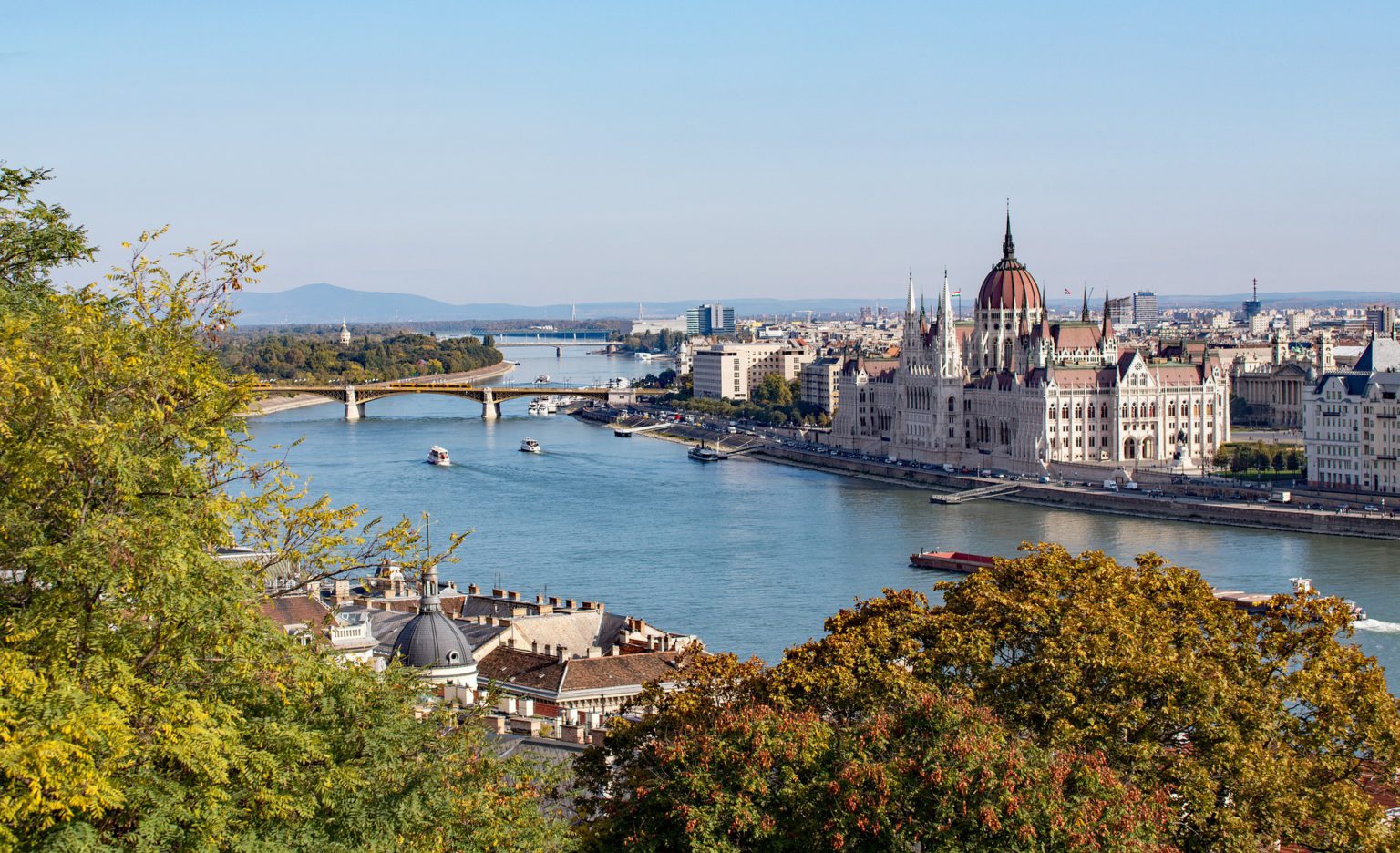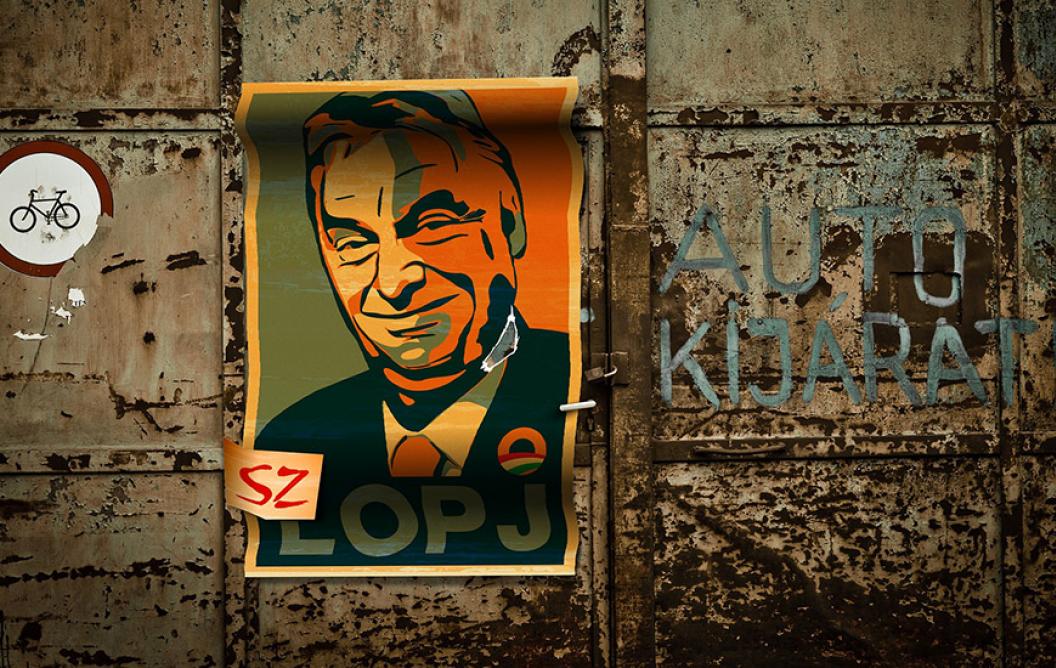Ten Years Of Viktor Orbán: the rise of ‘soft authoritarianism’
Closing down media outlets, universities and borders: it has been 10 years since Hungarian Prime Minister Viktor Orbán began his challenge to the liberal norms of the European Union. Last year, the think tank Freedom House even downgraded its assessment of Hungary from ‘free’ to ‘partly free’ due to “sustained attacks on the country’s democratic institutions.” Studio Europa Maastricht asks assistant professor in history (Maastricht University) Ferenc Laczó how this has happened and what the EU can, and cannot, do about it. “Western Europeans thought: they’ll become like us and like it.”
Viktor Orbán himself has repeatedly described Hungary under his rule as an ‘illiberal democracy’. We ask Laczó – whose academic research reveals a special interest in East-West European relations – what that means and whether it has a place within the EU’s self-proclaimed liberalism. “The model of illiberal democracy is to monopolize access to resources and gradually create hegemony in all realms of social life”, Laczó explains. “Its goal is to remove any serious possibility to contest what it does, with a weakening of democratic checks and balances along the way. The result of that is that you have a political field – like Hungary’s right now – where elections may be free but cannot be fair.”
The term, coined in the nineties by political scientist Fareed Zakaria, was first used by Orbán in 2014. “Numerous critics have pointed out that there is no such thing as illiberal democracy”, says Laczó, “That it’s a contradiction in terms, and I think that’s right.” Orbán, on the contrary, recently reinforced his belief in the model in an opinion piece in conservative newspaper Magyar Nemzet: “The doctrine that ‘democracy can only be liberal’ that golden calf, that monumental fetish – has been toppled”, Orbán writes. Laczó: “These are not statements of fact, these are statements of political intention on his part; ‘I intend to do away with liberal values’.”
That intention is becoming reality. Observers found that Hungary’s 2018 elections showed an overlap between state and ruling party resources, weakening contestants’ ability to compete with the ruling Fidesz party. What, then, one wonders, separates an illiberal state from an authoritarian one? “We have to realise there is a continuum”, says Laczó, who would classify the Hungarian regime as a soft version of authoritarianism, with an inclination to harden. “We see no physical violence or open oppression unlike, for instance, in Belarus. Electoral manipulation is taking place, but there’s no falsifying of the results. Hungary is somewhere in the middle of that continuum.”


“We tend to celebrate the end of the Cold War as a moment of liberalisation and democratisation. But it also meant a grave structural crisis in Eastern Europe”, says Laczó. Hungary was heavily indebted, with a sudden wave of unemployment and growing inequality. “The far right was extremely strong in Hungary when Orbán returned to power in 2010. The post-fascist deradicalization that happened in Germany and Italy didn’t occur in Hungary, which had fought alongside the Axis powers. It took many people until around 2015 to realise that Orbán was running the country from a far right, inherently antidemocratic position. That this was not just crisis management, but the far right in power.”
COVID-19 as a threat to the Orbán regime
With the ongoing COVID crisis raising questions about the limits of law and order internationally, Hungary has drawn special interest, closing borders, declaring a state of emergency, and intimidating citizens calling for peaceful protest. “Internationally, the observation in the spring was that Hungarian democracy has come to an end”, Laczó recalls. “In Hungary, however, most people thought that it was more of the same, that Orbán has been doing this for quite a while, that this was just another small step.”
Whereas many international observers consider the corona crisis another opportunity for Orbán to further strengthen his position, Laczó disagrees. He rather believes the crisis might be a grave danger for Fidesz. “The main legitimator of Fidesz’s power is economic performance, a growing economy. If you ask Hungarians what Fidesz’s main shortcoming is, they’ll say healthcare, the exact thing that’s most relevant now with the pandemic. Support can always tip around if there’s a robust opposition. I really think the next few years will be decisive for the future of the Orbán regime.”
Source: newsletter Studio Europe Maastricht
Also read
-
SBE researchers involved in NWO research on the role of the pension sector in the sustainability transition
SBE professors Lisa Brüggen and Rob Bauer are part of a national, NWO-funded initiative exploring how Dutch pension funds can accelerate the transition to a sustainable society. The €750,000 project aims to align pension investments with participants’ sustainability preferences and practical legal...

-
Fresh air
Newly appointed professor Judith Sluimer (CARIM) talks about oxygen in heart functioning and the 'fresh air' the academic world needs.

-
Özge Gökdemir and Devrim Dumludağ reveal differences in competitive behaviour between women in the Netherlands
Economists and spouses Dr Özge Gökdemir and Professor Devrim Dumludağ conducted a study for Maastricht University that reveals differences in competitive behaviour between women in the Netherlands. Their findings will be published soon in a scholarly journal. Here, they give us a sneak peek.

